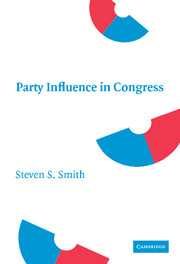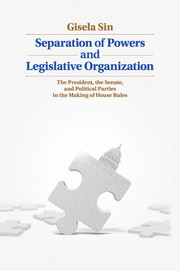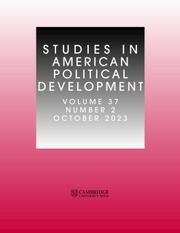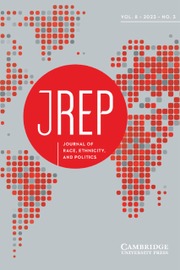The Collaborative Congress
The Collaborative Congress is an in-depth study of how members work together to create policy in a polarized legislature. While the modern Congress is characterized by partisanship and conflict, members frequently look for opportunities to find common ground on substantive policy. This book challenges the conventional narrative of a hopelessly dysfunctional legislature by revealing the widespread use of collaboration for successful policymaking. Drawing on a new dataset of communication between members, social network analysis, and qualitative interviews, chapters demonstrate that nearly every member engages in collaboration across a broad array of issues. The book identifies the strategic and political considerations that influence a member's decision to collaborate and shows that collaborative legislation is more successful at every stage of the policymaking process. This title is part of the Flip it Open Programme and may also be available Open Access. Check our website Cambridge Core for details.
- Provides novel insights into the day-to-day work of members of Congress and how they interact
- Uses interview data, real examples of collaboration, and a previously unstudied dataset of congressional communications for social network and content analyses
- Offers a new perspective on the policymaking process
Reviews & endorsements
‘In The Collaborative Congress, Alison Craig has produced the best of what congressional scholarship has to offer in understanding how Congress does its job. Using an original and innovative measure of cooperation across members, Craig demonstrates that, despite high levels of party polarization, members of Congress work together across the political aisle on a wide range of issues and achieve surprising levels of success. This sophisticated and engaging book will appeal to students, scholars, and political observers alike.’ Wendy Schiller, Brown University
‘In this timely and interesting book, Craig argues that, even in our current partisan and highly polarized environment, collaboration among members of Congress - both within and across the aisle - is a regular occurrence. By demonstrating why and how our representatives collaborate to pursue policy that benefits constituents, she offers an important complement and counterbalance to research on the many ways in which the contemporary Congress does ‘not’ work. The Collaborative Congress deserves to be widely read and discussed.’ Tracy Sulkin, University of Illinois Urbana-Champaign
‘Recommended.’ F. Kraus, Choice
Product details
October 2023Hardback
9781009338264
225 pages
235 × 158 × 19 mm
0.53kg
Available
Table of Contents
- 1. Collaboration in congress (Yes, it Exists!)
- 2. Social exchange in congress
- 3. Identifying policy collaboration
- 4. The breadth and substance of collaborative issues
- 5. The most (and least collaborative members of Congress
- 6. The interdependence of collaborative relationships
- 7. Legislative benefits of collaboration
- 8. The future of collaboration.








